When children commit crimes
Recently, the incident of a 14-year-old boy putting poison in his milk, causing the death of his father and grandmother in Hoa Hung commune (Cai Be district, Tien Giang province) shocked the public. The initial cause was determined to be that the father was often drunk, beat and caused conflicts with his son.
Recently, many shocking cases have also been committed by young people with serious crimes. It can be seen that not only are the numbers increasing, but the level and methods of crime committed by young people are becoming more complex and sophisticated. Preliminary statistics show that each year, on average, the whole country has about 13,000 young people violating the law, from illegal racing, fighting, causing disorder to many other acts such as intentional injury.
In recent years, there has been an increase in the number of young people gathering to use illegal drugs. Many cases of police raids on drug dens have shown that many members and groups are underage teenagers but have used drugs for many years. Many children are lured into drug trafficking because of drug use. In addition, high-tech crimes and violations of national security have also appeared in many cases of people under 18 years old.
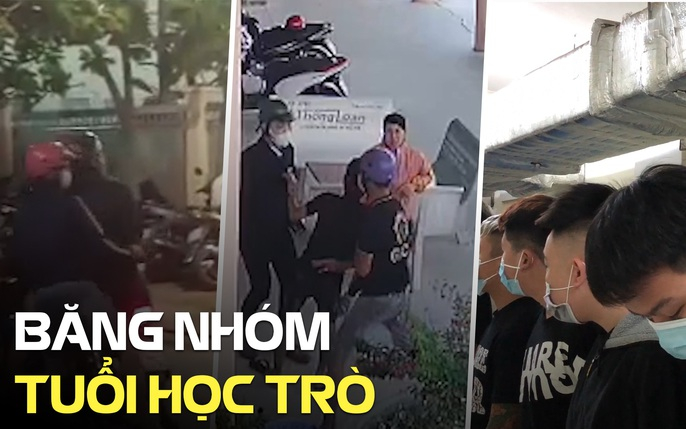
According to some statistics, the crime rate among minors will have relatively different rates and methods between regions and areas. In large cities, densely populated urban areas, where industrial zones are concentrated, where many people from all over the country are concentrated, the rate of juvenile crime will be much higher, from which the level of crime and the form of crime will also be more diverse and complicated than in rural areas.
In Ho Chi Minh City, records from the authorities show that in 2022, there were 2,628 cases of crime involving young people under 30 years old, accounting for 52.85% of the total number of arrests. Most of these subjects were first-time offenders, unemployed or had unstable jobs, low education levels, and were lazy.
According to data from the Hanoi City Police, in 2022 and the first six months of 2023, the authorities investigated and handled 99 cases, clarifying 1,458 subjects, including three cases with 31 subjects who swerved, swerved, and drove at high speed on motorbikes; 19 subjects were criminally prosecuted. Of these, 34.8% of the violators were under 16 years old, 46% were from 16 to under 18 years old; the subjects were mainly high school students; 23.5% of them were dropouts; more than 96% of the subjects had no criminal record.
What to do to prevent tragedy?
The increasingly youthful crime is no longer the story of the authorities alone, but it is the story of each family, society and the youth themselves. Just because of a moment of not being able to control oneself, the consequences behind each case are always tears, pain... and that pain will be even greater when the perpetrators are just boys and girls who have just started their lives and lost their future, their youth... This reality requires early solutions to educate, prevent and stop the current trend of youthful crime.
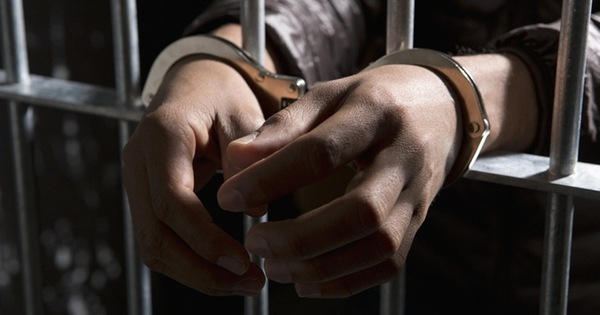
Juvenile crime is one of the most concerned crime groups in all countries. In Vietnam, crimes under 18 years of age are of a special nature, and are defined by law as a separate group of subjects with special policies. According to the provisions of Vietnamese criminal law, people aged 14 and over must bear criminal responsibility in some cases, while people aged 16 and over must bear criminal responsibility for all criminal acts. Article 12 of the 2015 Penal Code stipulates: “People aged 16 and over must bear criminal responsibility for all crimes, except for crimes for which this Code provides otherwise.”
However, in reality, juvenile crime is becoming more and more complicated, and the age of crime is getting younger. There are new subjects in their teens who have committed serious crimes such as robbery, murder, drug trafficking and use. There are even many "children" who commit organized crimes, with clear and distinct criminal purposes, calculations and plots, causing serious consequences, but many cases are difficult to handle, and cannot be handled because they are not old enough to bear criminal responsibility. These situations raise many issues in the research, development and amendment of legal regulations, decrees and guiding circulars to suit reality.
In addition to the legal aspect, the incident in Tien Giang also made many people wonder: Why would a 14-year-old child commit a murder, even against a blood relative, and what should be done to prevent similar heartbreaking incidents from happening?
PMQ's initial statement to the investigation agency showed that Q.'s parents were separated, and Q.'s three siblings lived with their mother. Q.'s father often drank alcohol, and when Q. advised his father to quit drinking, he was scolded, so Q. had the idea of killing his father. Lieutenant Colonel Dao Trung Hieu, a doctor of criminology, said that "declining morality" was the cause of the tragedy.
Children are often affected by adolescent psychological disorders, when maturity and maturity begin to take shape but childhood psychology still exists, causing children to be unstable and wavering. The habit of living a dissolute life, enjoying life, absolutizing personal interests... leads to negative reactions in children when facing adverse impacts from the living environment. Children easily feel hurt, agitated, and will have the need to relieve their frustration by violent means, causing harm to the object that is considered the cause of their inhibition, without thinking much about the consequences.
However, the deviations in children's psychology do not come naturally, they are the result of the process of being adversely affected by the family, school and social environment. Children are surrounded by violent games, anti-cultural publications on the Internet and movies. Due to the pressure of life, many parents do not have time to care for their children, the bond between family members becomes loose, or the divorce rate is increasing. In such circumstances, children grow up without timely guidance, care and correction from adults. Not to mention, there are families that lack harmony, parents often quarrel and fight; or educate their children with violence, force them to study too much to achieve high results..., leaving scars on the children's psychology. When not properly cared for and educated, children can easily develop feelings of disappointment about their family and parents, leading to hatred and even resentment towards the person who gave birth to them.
To prevent and stop the phenomenon of juvenile crime, Lieutenant Colonel Dao Trung Hieu said the most fundamental solution is education. The philosophy of education needs to change, towards nurturing personality instead of focusing on cramming knowledge. "If there is no teaching how to be human, the output will just be robots ," said Mr. Hieu.
Children need to be educated about altruism, about qualities such as patience (perseverance, enduring life's pressures), courage (strength, daring to think, daring to do, daring to protect the right, good, fairness), and calmness (calmness, restraint in the face of adversity, control of emotions, and one's own psychological processes). Education is not only through teachings, adults themselves must set an example through their own actions.
Most importantly, families, schools and society need to create a favorable environment for children to develop positive, progressive and humane personalities; need to promote the ethical traditions of Vietnamese families, maintain family traditions, exemplary grandparents and parents, and filial children and grandchildren...
"A happy, united, loving and respectful family will be the best foundation for forming a child's correct personality" - the Colonel affirmed.
Preventing the increase in juvenile crime is not only the responsibility of any individual, organization, department or sector, but also the coordination and cooperation of the whole society. There needs to be a clear mechanism to mobilize and define the responsibilities of departments, sectors and organizations involved in juvenile crime prevention.
On the other hand, to reduce juvenile crime, it is necessary to "change from the root" by strengthening education, especially education about crime, psychological support for minors, family education issues, support programs, job creation for children in special circumstances... At the same time, it is necessary to have measures to regularly monitor and evaluate the progress of juvenile crime prevention measures to ensure effectiveness and make adjustments when necessary.
Khanh An
Source



![[Photo] Prime Minister Pham Minh Chinh chairs the Government's special meeting on law-making in May](https://vphoto.vietnam.vn/thumb/1200x675/vietnam/resource/IMAGE/2025/5/22/1c880aae96fd4e0894abc47a46fe19ba)



![[Photo] General Secretary To Lam chairs a working session with the Central Internal Affairs Commission](https://vphoto.vietnam.vn/thumb/1200x675/vietnam/resource/IMAGE/2025/5/22/3b7790f499da45b2803d8ae253207ef1)














































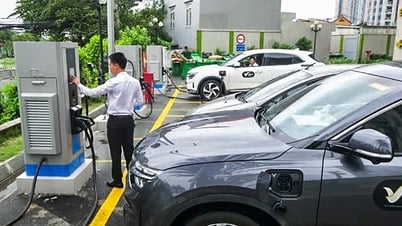













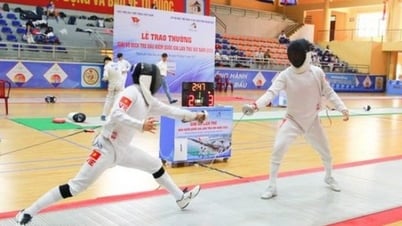





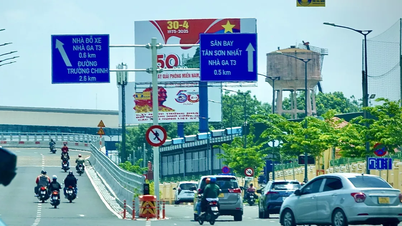





![[Podcast] Week introducing more than 500 OCOP products in Hanoi](https://vphoto.vietnam.vn/thumb/402x226/vietnam/resource/IMAGE/2025/5/22/d144aac2416744718388dbae3260e7fd)




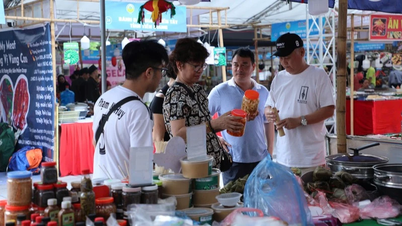


Comment (0)